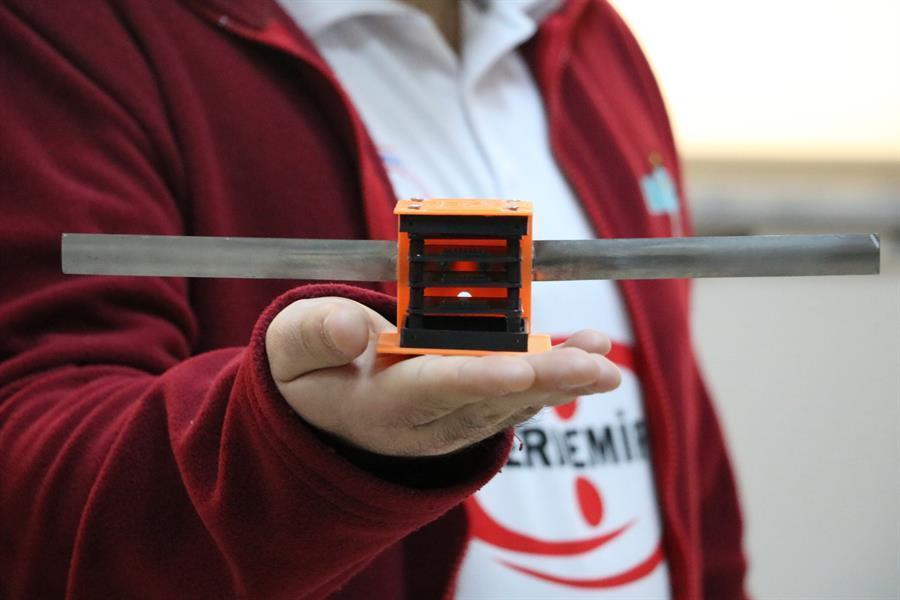Turkey’s first mini satellite set to launch on Jan 13
ZONGULDAK

Designed by the Grizu-263 space team of students from the Bülent Ecevit University in the northern province of Zonguldak, Turkey’s first PocketQube satellite project, Grizu-263A, will be launched into space on Jan. 13 with SpaceX’s Falcon 9 rocket.
The mini-satellite, which is 5x5x5 centimeters, will locate on a low earth orbit of 525 kilometers and operate for four years and eight months.
“We are happy that years of hard work will come to fruition,” Bülent Ekmekçi, the team’s supervisor, said in a press conference on Jan. 6.
The mission of the satellite will be to take photos of the earth.
“We will break a new ground globally when we succeed in taking a photo with a PocketQube satellite,” said Çağla Aytaç Dursun, the head of the team.
The Grizu-263 team has been known for its efforts on space and satellite technologies since 2016, the year it was established. Sponsored by the country’s leading steel manufacturer Erdemir, the team produced many projects that achieved various trophies in national and international contests.
The team, named after a firedamp (which means ‘grizu’ in Turkish) explosion that killed 263 miners in the Kozlu district in 1992, has been working on the PocketQube satellite for the last five years.
“Our satellite has been integrated into the rocket. We are waiting for the launch now,” Ekmekçi noted.
The mini-satellite will be in the orbit at 6.25 p.m. exact time on Jan. 13, according to the supervisor.
A PocketQube is a miniaturized satellite for space research that has a size of 5 centimeters cubed and has a mass of no more than 250 grams.
Not only the team but the province of Zonguldak is also making preparations for the satellite’s launch. “We are organizing an event where we will watch the launch live. All Zonguldak residents are welcome,” Ekmekçi added.
“We really worked hard. We slept in the university’s library for days. We will succeed more,” said Kerim Uslu, a proud member of the team.
Another member, Halime Pehlivan, gave a piece of advice to all her agemates. “Never let yourself down to people who say ‘you can’t do it.’ Show them that you can.”
The Grizu-263 team has been attending the satellite competition of the U.S. National Aeronautics and Space Administration (NASA), named “AAS CanSat,” since 2017. The team finished 25th in 2017 and second in 2018 and 2019. In 2020 and 2021, the team’s projects achieved fourth place.
Turkey which is one of the 30 countries having satellites in the orbit, has five communication and three surveillance satellites.
Türksat 1B was the first Turkish satellite in the orbit on Aug. 10, 1994.
The first attempt was on Jan. 24, 1994, when the rocket carrying the Türksat 1A fell into the ocean 12 minutes after the launch.
















